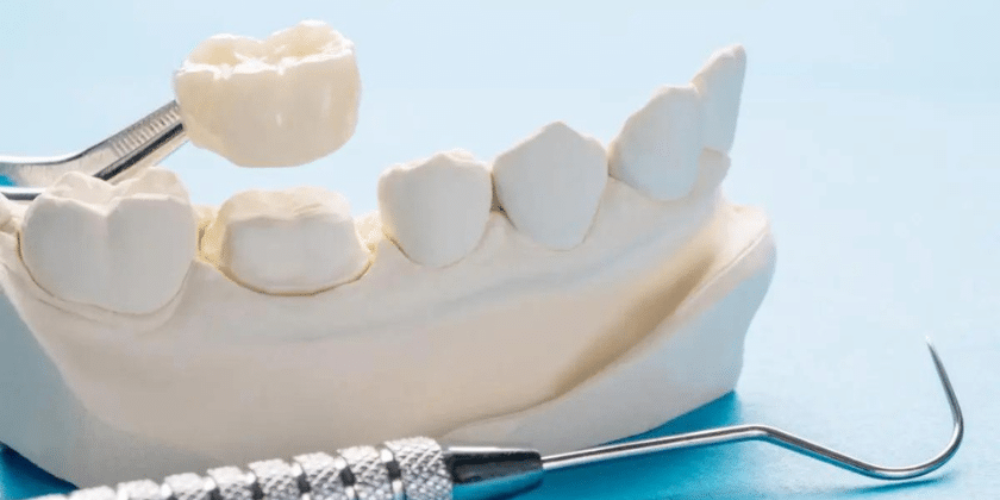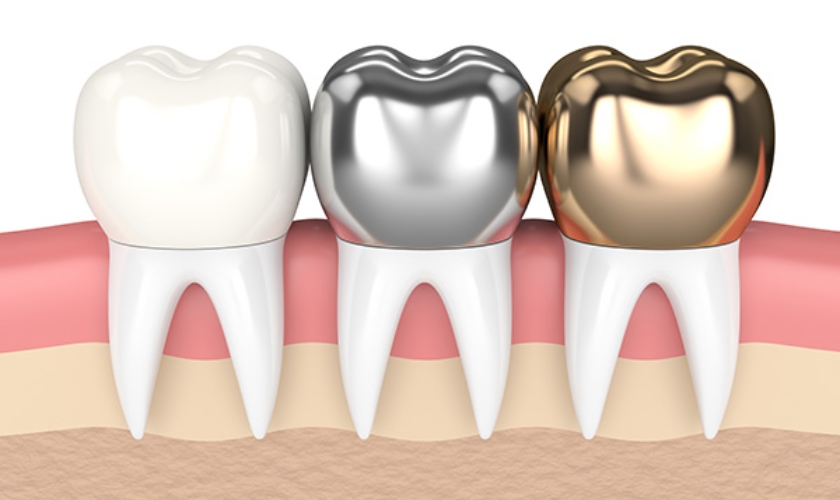$99 New Patient Special - Includes Exam, X-Ray and Basic Cleaning
Dental Crown Aftercare: 7 Tips for Long-Lasting Success

Dental crowns are a reliable solution for restoring the function and appearance of damaged or weakened teeth. Whether you’ve had a crown placed after a root canal, to fix a broken tooth, or to cover a dental implant, proper aftercare is essential to ensure its long-term success. While dental crowns are designed to be durable, taking the right steps to care for them will help maintain their longevity and protect the natural tooth structure underneath.
In this blog post, we’ll explore seven essential tips to guide you in caring for your dental crown. By following these aftercare practices, you can enjoy a healthy, functional smile for years to come.
1. Maintain a Consistent Oral Hygiene Routine
A dental crown functions like your natural tooth, and keeping up with regular oral hygiene is vital. Although the crown itself cannot decay, the tooth beneath it is still susceptible to cavities and gum disease, making it crucial to brush and floss regularly.
Tips for Oral Hygiene with a Dental Crown:
- Brush twice a day: Use a soft-bristled toothbrush to avoid damaging the crown. Fluoride toothpaste is also beneficial for protecting the tooth beneath the crown.
- Floss daily: Flossing around your dental crown is essential to prevent plaque buildup at the gum line and between teeth. You may need to use floss threaders or interdental brushes to clean effectively around the crown.
- Use mouthwash: An alcohol-free, antibacterial mouthwash can help kill bacteria and reduce plaque, supporting gum health around the crown.
By maintaining a consistent oral hygiene routine, you protect not only your crown but also your surrounding teeth and gums, reducing the risk of future dental issues.
2. Avoid Hard or Sticky Foods
Although dental crowns are durable, they are not indestructible. To prevent cracking, chipping, or loosening of your crown, it’s essential to avoid hard or sticky foods, particularly in the first few weeks after placement.
Foods to Avoid:
- Hard foods: Avoid chewing ice, hard candies, nuts, and popcorn kernels, as these can place undue pressure on your crown and potentially crack it.
- Sticky foods: Gum, caramel, and other sticky candies can pull on the crown and may loosen it over time.
- Crunchy snacks: Raw vegetables like carrots or apples should be cut into smaller, manageable pieces to avoid damaging your crown.
If you can’t avoid eating hard or sticky foods entirely, try chewing on the opposite side of your mouth where the crown is not located. This can help protect your crown from unnecessary pressure.
3. Manage Sensitivity and Discomfort
It’s common to experience some sensitivity or discomfort after receiving a dental crown, especially if it was placed after a root canal or extensive dental work. Typically, this sensitivity is temporary, but there are ways to manage it effectively.
Tips to Reduce Sensitivity:
- Desensitizing toothpaste: Using toothpaste designed for sensitive teeth can help alleviate discomfort, especially when consuming hot or cold foods and beverages.
- Avoid extreme temperatures: Minimize exposure to very hot or cold foods during the first few days following the procedure to prevent irritation.
- Over-the-counter pain relief: If you experience discomfort beyond sensitivity, an over-the-counter pain reliever such as ibuprofen can help manage the inflammation and soreness.
If sensitivity or pain persists for more than a week or worsens, it’s essential to contact your dentist. Prolonged discomfort could indicate an issue with the crown’s fit or with the underlying tooth.
4. Protect Your Crown from Grinding (Bruxism)
Teeth grinding, also known as bruxism, can put excessive pressure on your crown and cause it to crack or become loose. If you’re prone to grinding your teeth, especially at night, taking preventive steps is essential to protect your crown and other dental work.
Preventative Measures:
- Wear a nightguard: A custom-fitted nightguard from your dentist can provide a protective barrier between your upper and lower teeth while you sleep, reducing the risk of damage to your crown.
- Stress management: Grinding is often associated with stress. Practicing relaxation techniques such as deep breathing, meditation, or yoga can help reduce the likelihood of bruxism.
- Limit caffeine and alcohol: Both caffeine and alcohol are known to increase teeth grinding at night, so cutting back can help minimize the risk.
By addressing teeth grinding early, you can protect your dental crown and avoid more extensive damage that could require replacement.
5. Schedule Regular Dental Check-ups
Routine dental visits are critical to ensure that your dental crown remains in excellent condition. During these check-ups, your dentist will assess the integrity of the crown, look for signs of wear, and ensure the underlying tooth and surrounding gums are healthy.
What to Expect During a Dental Check-up:
- Crown examination: Your dentist will inspect the crown to ensure it fits properly and has not shifted or become damaged.
- Professional cleaning: A professional cleaning will remove any plaque or tartar buildup around the crown, protecting both your natural teeth and the crown itself.
- X-rays: Periodic x-rays may be taken to assess the health of the tooth beneath the crown, ensuring there are no signs of decay or infection.
Regular check-ups every six months will keep your dental crown in top condition and allow your dentist to catch potential issues before they worsen.
6. Avoid Using Your Teeth as Tools
Using your teeth to open packages, tear tape, or even hold objects like pens can cause serious damage to your dental crown. Teeth, especially those with crowns, are not meant to handle such force and can easily crack or become dislodged when used improperly.
Common Misuses to Avoid:
- Opening bottles: Never use your teeth to open bottle caps or other sealed containers.
- Tearing packaging: Use scissors or a proper tool to open the packaging instead of your teeth.
- Biting nails: Nail-biting can exert undue pressure on your crown and increase the risk of damage.
By being mindful of how you use your teeth, you can significantly extend the life of your dental crown and prevent costly repairs.
7. Monitor Your Diet for Oral Health
The food you eat affects not only your natural teeth but also the health of your dental crown and gums. A well-balanced diet rich in vitamins and minerals supports strong teeth and helps prevent plaque buildup, which can compromise the health of your crown.
Best Foods for Oral Health:
- Calcium-rich foods: Dairy products, leafy greens, and fortified alternatives help maintain strong bones and teeth, supporting the natural tooth beneath your crown.
- Vitamin C: Found in citrus fruits, strawberries, and bell peppers, vitamin C promotes healthy gums and protects against gum disease, which can weaken the crown’s foundation.
- Water: Drinking plenty of water helps wash away food particles and bacteria, reducing the risk of decay around your crown.
Limiting your intake of sugary and acidic foods can also help protect your crown from plaque buildup and gum irritation.
A dental crown can last many years with the right care, providing you with a functional, healthy smile. By maintaining a good oral hygiene routine, avoiding hard foods, managing sensitivity, and scheduling regular dental check-ups, you can ensure that your crown remains in excellent condition for years to come.
Following these seven key tips for dental crown aftercare will not only extend the life of your crown but also contribute to your overall oral health. With proper care and attention, you can enjoy the benefits of your dental crown and keep your smile looking its best.





